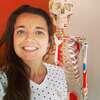5 arguments for a visit to the osteopath before the Christmas festivities
As Christmas approaches, the festivities and preparations can sometimes overshadow the importance of looking after your health. Scheduling a visit to the osteopath during this period can be beneficial for many reasons. Discover 5 key arguments that underline the importance of this approach.
Preventing physical stress related to preparation
The run-up to Christmas is often synonymous with joy and anticipation, but it also brings with it significant physical challenges. Between decorating the house, frantic shopping and preparing for the feasts, our bodies are put under intense strain. In this context, osteopathy proves an invaluable ally in preventing and relieving the aches and pains associated with these activities, ensuring better stamina for the celebrations to come.
The physical demands of Christmas preparations
-
Home decorations: Installing decorations, especially lights and Christmas trees, often requires physical effort, such as bending, stretching and carrying heavy loads. These movements can lead to muscle strain, back pain and joint problems.
-
Shopping and errands: Long hours spent walking in stores, carrying heavy bags and queuing can lead to leg, back and shoulder pain. Stress and fatigue accumulate, affecting posture and mobility.
-
Meal preparation: Home cooks spend hours on their feet in the kitchen, bending over work surfaces that are often not ergonomically adapted. These prolonged postures can cause back and neck pain.
Osteopathy's role in prevention
-
Assessment and preventive treatment: An osteopath can assess your current physical condition and identify areas likely to develop pain. By treating these areas before they become problematic, osteopathy can prevent the onset of acute or chronic pain.
-
Improving posture and mobility: Osteopathic techniques aim to improve posture and joint mobility. This is particularly useful for repetitive activities such as decorating and cooking, where good posture can significantly reduce the risk of pain.
-
Release of muscular tension: Osteopathy can release accumulated muscular tension, often caused by stress and physical exertion. This improves recovery and prevents chronic muscular pain.
Our tips for physical stress
- Planning and breaks: Plan your activities and avoid doing everything at the last minute. Take regular breaks to stretch your body and relax, especially when you're not used to this type of activity.
- Vary your activities
- Help yourself: Christmas is also a time to spend with family. Instead of just having an aperitif and dinner, why not bring your loved ones round early and cook together?
- Ergonomics in the Kitchen: Adjust the height of your worktops and use comfortable shoes to reduce the pressure on your back and legs. If you're prone to circulation problems, remember to wear support stockings, socks or tights.
Aids digestion during hearty meals

Christmas celebrations are often marked by copious, rich meals, which can put a strain on our digestive systems. In this context, an osteopathic consultation can be a major asset in promoting healthy digestion and preventing the gastrointestinal discomforts common during this festive period.
The digestive challenges of Christmas feasts
-
Rich and varied foods: Christmas meals are traditionally made up of foods rich in fats and sugars, which are difficult to digest. This overload can lead to bloating, gastric acidity and discomfort.
-
Overeating: The tendency to overeat during the holidays puts extra pressure on the stomach and intestines, leading to digestive problems such as indigestion and constipation.
-
Stress and food: The stress of preparation can also affect the digestive system, disrupting the normal mechanisms of digestion and food absorption.
The osteopathic approach to better digestion
-
Stimulation of the digestive system: The osteopath can use manual techniques on the digestive system through your visceral techniques as well as techniques on the spine to help the digestive system. This can help reduce symptoms of heaviness and bloating.
-
Improved circulation: Good circulation is crucial for efficient digestion. Osteopathy can improve circulation in the abdominal region simply by mobilizing the area. This facilitates the digestive process.
-
Reducing stress and bodily tension: By acting on the nervous system, osteopathy can help alleviate stress, which is often responsible for digestive disorders. Releasing muscular tension can also contribute to better functioning of the digestive organs.
Tips for healthy digestion over the holidays
-
Eat in moderation: Try not to succumb to the temptation to overeat. Take small portions and savor every bite.
-
Choose easily digestible foods: Choose light, low-fat foods. Vegetables, fruit and lean proteins are good choices.
-
Hydration and exercise: Keep well hydrated and incorporate light physical activity into your routine. A walk after a meal can stimulate digestion.
Managing stress and emotional tension
End-of-year festivities, despite their joyful nature, can also be a significant source of stress and emotional strain. High expectations, the pressure of preparations, and sometimes complex family dynamics contribute to a heightened state of stress. Osteopathy, by treating the physical manifestations of this stress, offers a route to better emotional management.
Understanding emotional stress during the holidays
-
Sources of stress: Holiday preparations, such as gift shopping, cooking and organizing family gatherings, can generate considerable stress. What's more, the memories and expectations associated with these occasions can arouse complex emotions.
-
Physical impact of emotional stress: Emotional stress often manifests itself physically in the form of muscle tension, headaches and other symptoms. These physical manifestations are not only uncomfortable, but can also exacerbate emotional stress.
The role of osteopathy in stress management
-
Releasing physical tension: Osteopathy focuses on releasing muscular tension and body imbalances. By releasing these tensions, it helps reduce the physical symptoms of stress, facilitating better emotional management.
-
Improved breathing: Osteopathic techniques improve breathing, a function often impaired by stress. Improved oxygen supply and circulation can have a calming effect on the mind.
-
Balancing the nervous system: Osteopathy aims to balance the nervous system, particularly the autonomic nervous system, which is directly affected by stress. By reducing the activity of the sympathetic nervous system (responsible for the "fight or flight" response) and stimulating the parasympathetic system (which promotes relaxation), osteopathy helps to reduce stress levels.
Tips for managing emotional stress
-
Relaxation practices: In addition to osteopathic treatment, practices such as meditation, yoga or deep breathing can be beneficial for managing emotional stress.
-
Regular physical activity: Physical exercise is an excellent way to manage stress. It releases endorphins, the feel-good hormones, and promotes a positive state of mind.
-
Managing time and expectations: Planning activities realistically and adjusting expectations can help reduce the stress of holiday preparations.
Preventing winter-related injuries
Winter is the season for sporting activities such as skiing, skating and hiking. While these activities bring pleasure and well-being, they also entail risks of injury. In this context, osteopathy plays a crucial preventive role, improving flexibility, coordination and the body's overall preparation for these physical challenges.
Risk of injury in winter sports

-
Types of injury: Winter activities can lead to a variety of injuries, including sprains, fractures, muscle damage and joint pain. Falls, slips and strenuous physical exertion are often the cause of these injuries.
-
Contributing factors: Low temperatures and slippery surfaces increase the risk of injury. In addition, lack of adequate physical preparation can make the body more vulnerable to accidents.
Osteopathy to prevent winter injuries
-
Improved flexibility: Osteopathic techniques help to increase joint mobility, which is essential to prevent injury, especially in sports requiring large movements such as skiing or skating.
-
Improved coordination: Osteopathy promotes better body coordination, improving balance and responsiveness, two key elements for successfully navigating the slippery, uneven terrain typical of winter environments.
-
Body preparation: An osteopath can work on the whole body to ensure that it is ready to cope with the physical demands of winter sports. This includes checking postural alignment, improving joint mobility, and relieving pre-existing muscle tension.
Use of mutual quota before the end of the year
The approach of the end of the year is an ideal time to make use of your mutual insurance quota. Every year, you contribute to the cost of healthcare. How far have you got in the budget covered by your mutuelle? If you still have some left over, take advantage of your mutuelle's coverage to take care of yourself.
Marie Messager
Osteopath D.O
2 rue Alexis de Tocqueville
78000 Versailles

